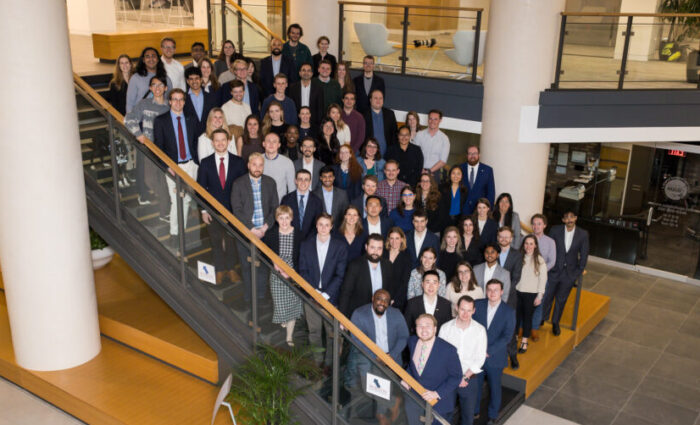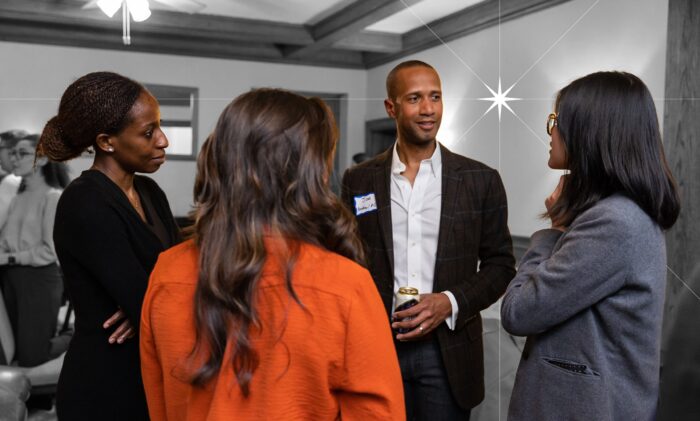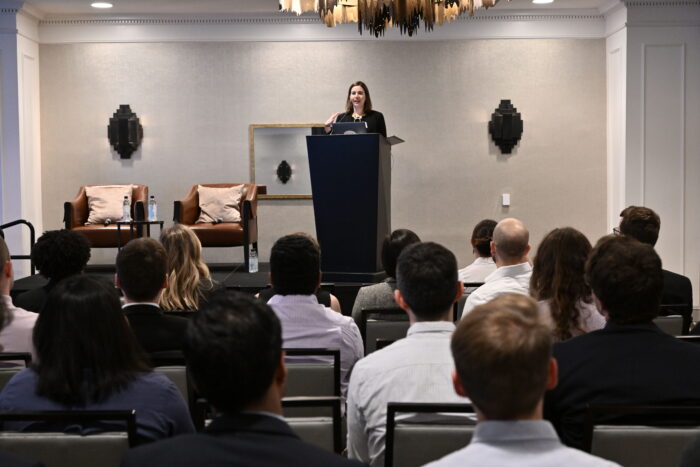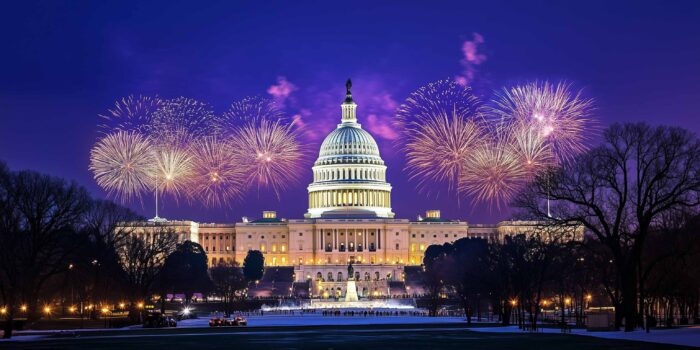
Applications open for 2025 Horizon Fellowship cohort
Program Overview
The Horizon Fellowship places experts in artificial intelligence (AI), biotechnology, and other emerging technologies in federal agencies, congressional offices and committees, and leading think tanks in Washington, DC for up to two years. Fellows will join a community of 50+ alumni and receive comprehensive training, networking opportunities, and financial support to launch their careers in public service.
Advances in emerging technology like AI and biotechnology are profoundly reshaping many domains of life. The US government plays an essential role in developing and governing new technologies, crafting policies to take advantage of their benefits and guard against the potential harms they pose.
As a fellow, you will become part of a community of dedicated professionals working on these pressing global challenges. The program provides hands-on experience within the US federal government or influential think tanks, allowing you to apply your expertise to real-world policy issues and launch a career in public service.
Key details
- Duration: 6 months for junior fellows and 12 months for fellows (with potential for a second term renewal)
- Compensation: Fellows receive a stipend of $110,000/year and junior fellows receive $75,000/year equivalent, plus $15,000 in health care support. Additionally, all fellows and junior fellows can access a $3,000 professional development stipend and up to $3,000 for relocation to DC (if needed).
- Start date: Summer 2025 (with part-time, remote training from January–March 2025)
- Location: Washington, DC
Program structure
The Horizon Fellowship comprises three stages, designed to maximize fellows’ learning opportunities and placement success:
- Training (January–March 2025): As a group, the selected fellowship cohort completes a part-time, remote training on how the US federal government works, applied skills (e.g. policy memo writing), and AI and biotechnology policy debates. The training is capped off by an extended in-person weekend in Washington, DC, during which fellows get to meet dozens of AI and biotechnology experts from across the policy world. The curriculum and networking are designed to maximize fellows’ chances of successfully matching with a host organization.
- Matching (April–May 2025): After training, fellows go through an individualized matching process, during which they talk to prospective host organizations within their track (executive branch agencies, congressional offices and committees, or think tanks). Most fellows receive multiple placement offers after interviewing with prospective host organizations, after which they can decide where they want to match for their placement.
- Placement (Spring/Summer 2025 onward): After successfully matching, the fellow and their chosen host organization agree on the start date that works best for them. Horizon will begin paying the fellow upon the start of their placement. Fellows are expected to start their placements by the end of summer 2025.
Previous cohorts have achieved a 100% success rate in securing placements. For example, our fellows have worked at the Departments of Defense and Homeland Security, Senate and House committees, and prestigious think tanks like the Center for Security and Emerging Technology. You can learn more about past fellows and their placements at Meet our Fellows and Fellow Accomplishments.
To date, after their fellowship, 100% of Horizon alumni have gone on to full-time policy and public service positions or to graduate programs, including at the Senate Committee on Commerce, Science, and Transportation, the National Security Commission on Emerging Biotechnology, the Cybersecurity and Infrastructure Security Agency, the Government Accountability Office, and the Pardee RAND Graduate School.
Who should apply?
We welcome applicants from diverse backgrounds and career stages. Prior policy experience is not required. We are looking for individuals who are passionate about making a positive difference in the world and want to contribute their skills to solving challenging problems related to emerging technology.
We care more about attitude, abilities, and knowledge than formal credentials. Horizon has supported fellows at a range of career stages, from recent graduates to mid-career professionals, and we are excited to receive applications from individuals with non-traditional professional backgrounds. Subject-matter expertise in emerging technology—whether through coursework, work experience, or self-study—is required.
Research shows that great candidates often disqualify themselves too quickly, especially if they are from underrepresented groups. If you are excited about the program but on the fence about whether you are eligible or qualified, we strongly encourage you to apply.
Application process
The fellowship application process consists of a mix of written questions, interviews, and short paid work tests. The process is designed to help applicants test whether they enjoy the types of tasks that are representative of work they might do in their prospective policy roles.
See the Become a Fellow and Applicant FAQ pages for more information on the program content, eligibility criteria, application process, and other details. The application deadline is September 3rd, 2024.
Potential applicants can also register interest here to attend an optional information session in August, during which you can ask questions about the program.
About the Horizon Institute for Public Service
The Horizon Institute for Public Service is a non-partisan, non-profit organization that helps the US government navigate our era of rapid technological change by supporting the next generation of emerging technology policy talent. Horizon runs a variety of programs, including workshops, advising, web content, and our fellowship, to support people at all stages of their careers, from undergraduates interested in exploring policy careers to mid-career professionals looking to pivot into government.



